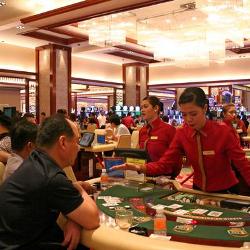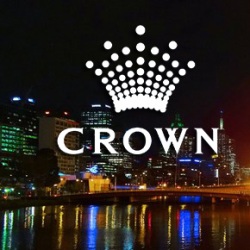Philippines Considers Charging Entrance Fee at Casinos

According to report published by the National Tax Research Center (NTRC), an institution under the Philippines Department of Finance (DOF), the country needs to consider introducing an entrance fee for all the country’s casinos, which should then be imposed on both national and international visitors alike.
The report was published recently in the NTRC Tax Research Journal, and as well as attempting to justify the charging of an admission fee of between PHP500 ($10) and PHP1,500 ($30), the paper also addresses the feasibility of such a proposal, and how this scheme could subsequently generate extra revenues for government coffers.
Billions in Extra Revenue
The investment bank Credit Suisse says that casinos in the Philippines could generate up to US$6 billion this year, which would make the country one of the gaming industry’s biggest markets. In the meantime, if gaming regulators were to impose an entrance fees of PHP1,500 it could then generate up to PHP1.67 billion ($300m) in additional revenue, even if it caused local casino attendance to drop by as much as 80%.
This forecast is based upon NTRC data which estimates that around 5.56 million Filipinos enter the country’s casinos each year, with 99% of locals playing at licensed private-sector casinos, but only 1% visiting Pagcor-operated casinos, which is the name of the country’s gaming regulator.
The entrance fee proposal already has the support of many politicians, too, with several bills having been introduced in the lower house during recent years. In 2015, for instance, the NTRC supported House Bill 4859 which suggested an entrance fee of PHP3,500 for all Filipino casinos. In 2016, there was also another bill that proposed a PHP3,000 entry fee, with yet another bill introduced in 2017. Even more recently, Isabela 1st District Representative Rodolfo Albano III introduced her bill following the high-profile attack of a gambling addict at the Resorts World Manila that left 37 people dead.
Legislation Ready
The report made clear that there wasn’t any need to introduce a new law for the entry fee proposal as there is already legislation in place that allows Pagcor to collect fees from casino goers. In fact, this is laid out in Executive Order 48 dating back to 1993 which allows Pagcor to charge “qualifying fees” from local and foreign players. In 2005, the regulator subsequently collected PHP20.2 million in such fees, falling significantly in latter years to reach just PHP14.4 million by 2016.
Nevertheless, while the legislation is in place, there’s no effective implementation being practiced. In other words, the law isn’t mandating any fees and very few casinos are bothering to enforce them. As well as EO 48, the Presidential Decree 1869 states that locals need to present proof that they earn an annual gross income of over PHP50,000 before using casinos, which is another rule apparently not being followed.
In 2017, the City Council of Quezon City also recommended that a PHP1,500 entry fees should be charged by all casinos in the area. The proposal was made after Bloomberry Resorts Corp. unveiled its plans to establish a casino in the area whose focus would be on the mass market. According to Albano, the levy system would have the benefit of generating extra revenues, as well as protecting lower-income Filipinos from the dangers of gambling addiction, and as he explains:
“It only seeks to address some poor people who have no more money and yet go inside and gamble all they have left for their families.”
The Singapore Example
There are a number of other Asian countries that already are using a similar type of levy systems, Citizens and permanent residents in Singapore, for example, need to pay statutory entry levy of S$2,000 for a year’s access to the country’s two casino resorts, or alternatively S$100 for a 24-hour pass. Meanwhile, Japan is set to legalize casino gambling and is also considering introducing a the levy system at its integrated casino resorts.
While Macau, too, is contemplating the idea of imposing a casino charge, the situation is different from that of Japan, Singapore, and the Philippines in that the Chines government is more concerned about keeping threats such as terrorism away from its casinos, rather than discouraging locals from entering them.








